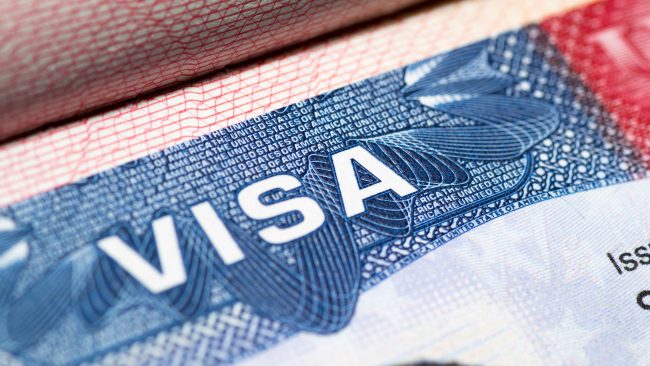If you want to enter Nicaragua as a tourist, you must bear in mind that, depending on your nationality, some immigration requirements or others are required. Likewise, it is important to know the vaccines that are mandatory and recommended to enter the country.
Below you have an index with all the points that we are going to deal with in this article.
Article Index
- 1.
- 1.1.
- 1.2.
- 1.3.
- 2.
- 3.
Required Documentation
Depending on the nationality of the traveler, the requirements to travel to Nicaragua vary. While some countries require a visa, others just need a DNI.
ID and passport
Nicaragua has a free mobility agreement with El Salvador, Guatemala and HondurasTherefore, the citizens of these territories will only need their National Identity Document (DNI) to travel to this country.
On the other hand, this is the list of countries that do not need a visa, but do passport, for stays of up to 90 days. This document must be valid for at least six months at the time of the trip:
- A: Germany, Andorra, Antigua and Barbuda, Argentina, Australia and Austria
- B: Bahamas, Bahrain, Barbados, Belgium, Belize, Brazil, Brunei-Darussal and Bulgaria
- C: Canada, Chile, Cyprus, Vatican City, South Korea, Costa Rica and Croatia
- D: Denmark
- E: Slovakia, Slovenia, Spain, United States and Estonia
- F: Finland and France
- G: Greece
- H: Holland, Hong Kong and Hungary
- I: Ireland, Iceland, Israel, Italy, Marshall Islands and Solomon Islands
- J: Japan
- K: Kuwaiti
- L: Latvia, Liechtenstein, Lithuania and Luxembourg
- M: Macedonia, Madagascar, Malaysia, Malta, Mexico and Monaco
- N: Norway y New Zealand
- P: Panama, Paraguay, Poland and Portugal
- Q: Qatari
- R: United Kingdom, Czech Republic and Romania
- S: Saint Kitts and Nevis, Saint Marino, Saint Vincent and the Grenadines, Saint Lucia, Sao Tome and Principe, Singapore, South Africa, Sweden and Switzerland
- T: Taiwan, Trinidad and Tobago, Turkey and Tuvalu
- U: Uruguay
- V: Vanuatu
In addition to the passport, in order to enter the country, the traveler is asked for a return ticket to the place of origin and evidence of having the economic means to stay in Nicaragua.
Visa
The rest of the countries that do not appear on the list do need a visa to enter Nicaragua as tourists. These territories include Bolivia, Colombia, Ecuador, Peru and Venezuela. This visa can be applied for at any consulate.
However, there are other States that are required to visa consulted, that is to say, it has to be approved by the General Directorate of Migration and Foreigners. These countries include Cuba and Haiti.
To be able to process the visa, it is necessary to have a passport with a minimum validity of six months on the day of departure, as well as to fill in an application form.
Other requirements
Minors who wish to enter Nicaragua will need their own passport. Furthermore, if they are traveling alone or with only one parent, they will generally need an official authorization signed by both parents.
On the other hand, it is allowed to travel to this country with Pets. If you are going to do it By planeCheck with the airline about the conditions for transporting the animal on the flight. In the following article, you can find information about all of them: List of the main airlines in the world by country.
Likewise, dogs and cats must have a veterinary certificate that demonstrates the good health of the animal. In addition, it is essential to carry a vaccination certificate stating that you are vaccinated against rabies.
Vaccines
If you come from a country in South America, it is required get vaccinated against yellow fever. Children under five years of age worldwide should be vaccinated against the following disorders:
- polio
- TPD
- MMR
- Rubella
- Measles
- Parotitis
On the other hand, the recommended vaccines are measles, diphtheria and tetanus, and tuberculosis for minors. Similarly, there are some viral diseases present for which there are no vaccines.
These viruses include dengue, chikungunya and zika, which are more present between June and January. The area most affected is Managua. These diseases are transmitted through the bite of a mosquito.
The most important recommendations to avoid the spread of these viruses are the following:
- Wear clothing that covers the entire body
- Use insect repellants
- Avoid places where exposure to these mosquitoes is high
- Cover containers of water and other liquids
Also, even today, temporary outbreaks of leptospirosis, cholera, and malaria can occur. On the other hand, the traveler can suffer from diarrheal diseases, intestinal parasites and conjunctivitis.
Therefore, the most important advice is to take hygienic precautionssuch as drinking bottled water, washing raw fruits and vegetables, and avoiding food from street stalls.
Transport
The neighboring countries of Nicaragua, Honduras and Costa Rica have the possibility of reaching this territory by land. In the case of Costa Rica, there are several requirements that must be met to cross the border, whose border crossings are Peñas Blancas and Las Tablillas.
To leave Costa Rica, you must pay a fee of eight dollars per person, either in advance at a Bancrédito bank or at the ATMs at the border, which only accept credit cards.
In addition, three dollars are paid to fumigate the car and insurance must be taken out, which in the case of being for 30 days costs twelve dollars. In addition, five dollars are paid for the right of movement.
With all these payments, you get permission to circulate through El Salvador, Guatemala, Honduras and Nicaragua for ninety days, since, as we have explained, they have a free movement agreement.
As for people, a city tax has to be paid one dollar and about 12 as an entrance tax. It is advisable to carry several photocopies of the passport.
On the other hand, if you decide to travel to the country By plane, upon arrival you have to acquire a tourist card that has a value of 10 dollars. As for the departure, a tax of 44 dollars is paid, which is destined to the National Airport System.
Whether you arrive by land or air, at the border control or airport, everyone has to go through a remote body temperature scanner, in order to maintain the security of the country.
This article has been shared 712 times. We have spent many hours collecting this information. If you liked it, share it, please:







